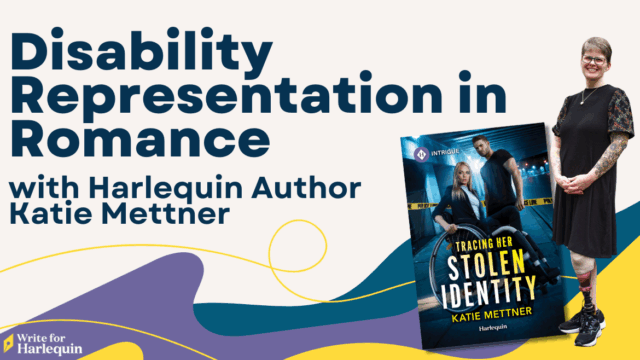Dear Editor,
I have a story in mind that is close to my heart and tackles some quite difficult subjects. But how rooted in reality can I make it? I would really appreciate some advice before I start, I’m just not sure what line to walk between reality and a good escapist read! Thank you!
Tammy
Dear Tammy,
You’ve raised a really interesting question here! Treading the fine line between reality and escapism is undoubtedly a tricky job, but finding the right balance is essential when writing romance. Firstly, readers come to this genre specifically to escape, put themselves in the heroine’s shoes and find themselves whisked off on a romantic adventure. But at the same time, the characters and the world need to be rooted in reality – believable enough so that readers think ‘it could happen to me!’
Building a believable world
Whether you’re setting your story in a desert kingdom, a fictional royal principality, city or small town, you need to create a world that readers can instantly step into. So steer clear of places involving current conflict or where the destination will become the focus of the story and not your hero and heroine. If you’re planning on going down the high fantasy route, then remember to target your submission! Different worlds and their tropes apply to different series and genres. Readers don’t want to find a vampire in a Sheikh palace any more than a cattleman on a Viking ship!
Too domestic?
No one wants to read the ins and outs of what your characters had for breakfast! So steer clear of telling the reader too much about the ordinary aspects of their lives. Instead, keep the pace of the story moving with action and dialogue. Going out for dinner may be essential to the development of the relationship – but what they ordered isn’t!
Think about what details your reader needs to know and how it will be relevant to the romance. For example, describing the clear aqua Mediterranean sea the heroine looks out at from her opulent bedroom while she relives the events of night before is great! But telling the reader your heroine went to the bathroom, brushed her hair and then changed her outfit before she looked out the window simply slows the pace of your story down. If it helps, write everything down while the world is made clearer in your head, then read it back and keeping asking the question ‘Do readers need to know this?’ I know it’s scary to press delete, but remember, less is more! Especially when it comes to the domesticity of your characters, save those all important words for creating a convincing romance!
Pick your emotional battles
Hard hitting, challenging subjects are something we actively encourage and we love the diversity they bring. But ensuring the subject matter doesn’t take over and bring the tone of the book down is in the hands of your characters and you. Don’t let them wallow in self-pity or dwell too much on the negative aspects of their conflict. There needs to be a happy ending after all! 🙂
Whatever challenging conflict you have in mind – whether it is something as tragic as the death of a loved one, infertility, living in a family member’s shadow, abandonment issues or living under the weight of duty – let your conflict form the backbone of the story and create barriers, but ultimately have your characters break through these barriers at the end. Don’t let the subject matter win! By the time you reach your romantic resolution, with each other’s help your characters should have found peace with their inner conflict.
So remember, whatever difficult subject matter you choose to give your characters, don’t let it define them forever. They should always be working towards a happy ever after. Every time you find your characters falling down the rabbit hole of doom and gloom, remind yourselves – you have the power to save them, and give your readers the escapist read they are looking for!
Lastly, trust your instincts and good luck!
The SOLD Editors x




